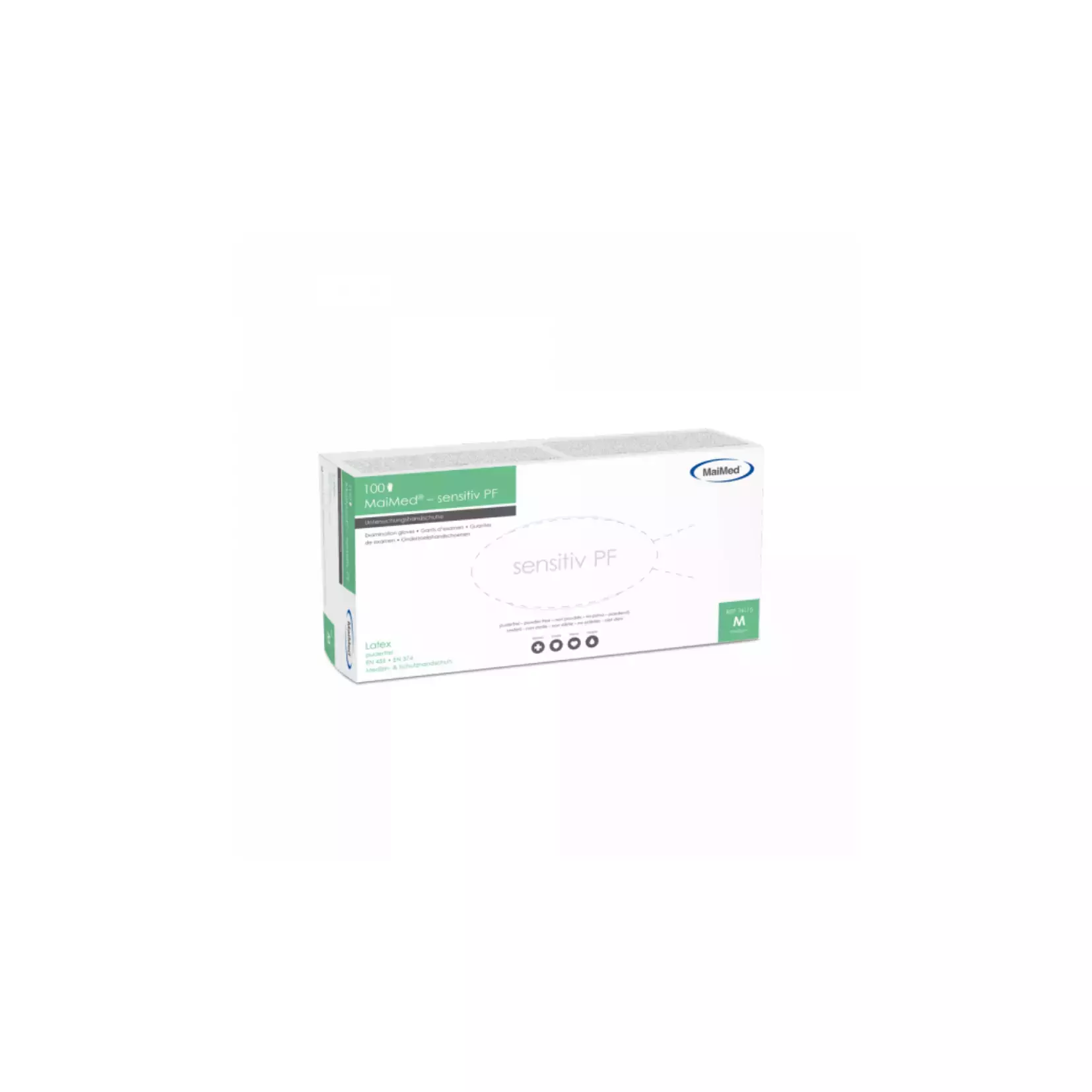
Product description
The MaiMed® – sensitiv PF offers a particularly secure grip due to its heavily textured surface and special processing, even in wet conditions. The MaiMed® – sensitiv PF is also particularly durable due to its thick wall thickness. Suitable for the private practice sector with a focus on dental medicine as well as laboratory work.
About Disposable Latex Gloves
Disposable Latex Gloves are single-use hand coverings made from natural rubber, offering excellent elasticity and tactile sensitivity. Perfect for medical examinations, food handling, and cleaning tasks, these gloves provide reliable barrier protection while maintaining dexterity and comfort during use.
- Chemical Resistance
- Food Service
- Antimicrobial Protection
- Hand Protection
Standards and labels
MaiMed delivery terms
Free delivery when you order more than 240,00 € from MaiMed
Supplier shipping fee 9,46 €
Brand minimum 20,00 €
83,05 €
Price per 10 packages (1 000 pcs)
8,31 € / 100 pcs
Shipping fee is 9,46 € for orders under 240,00 €